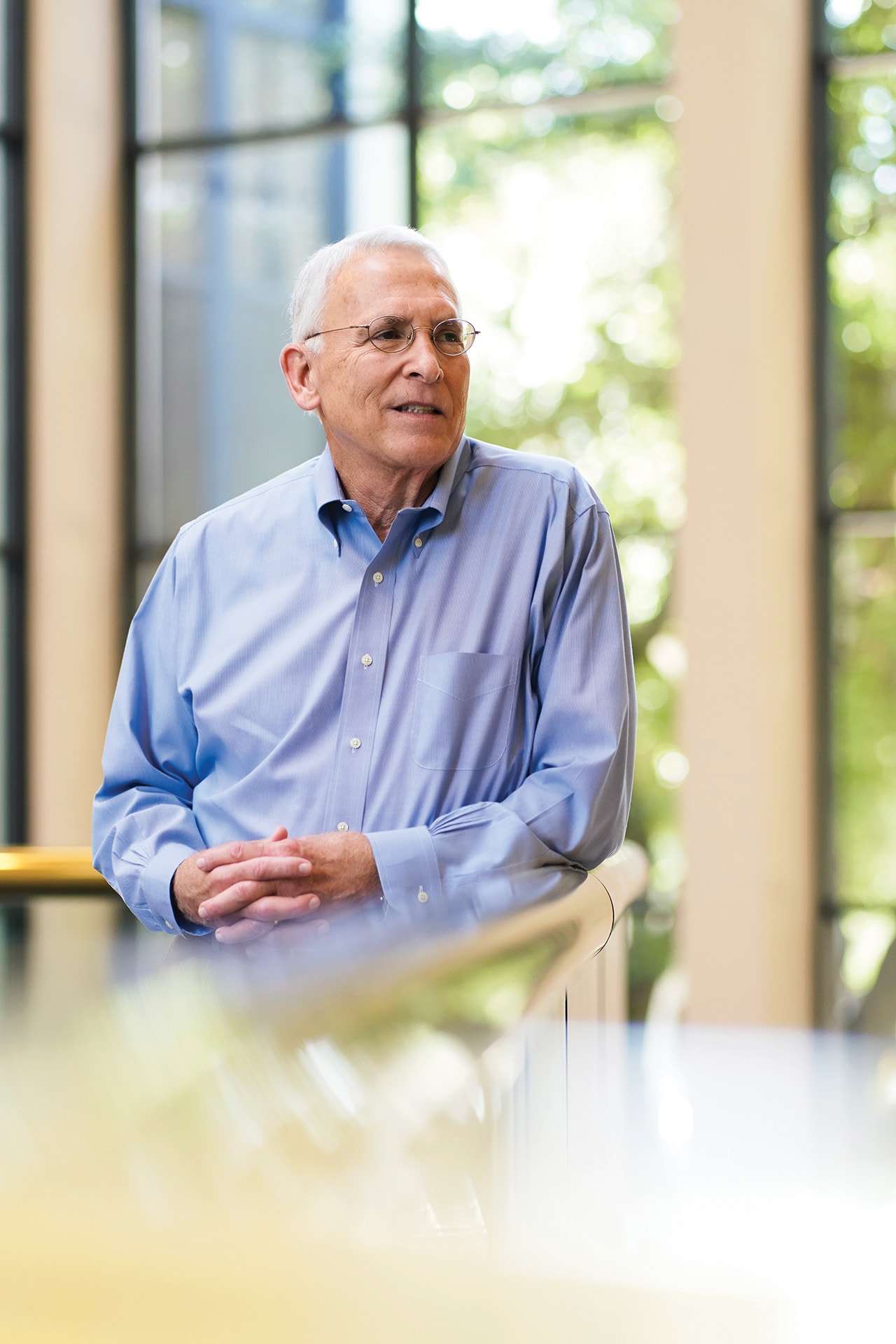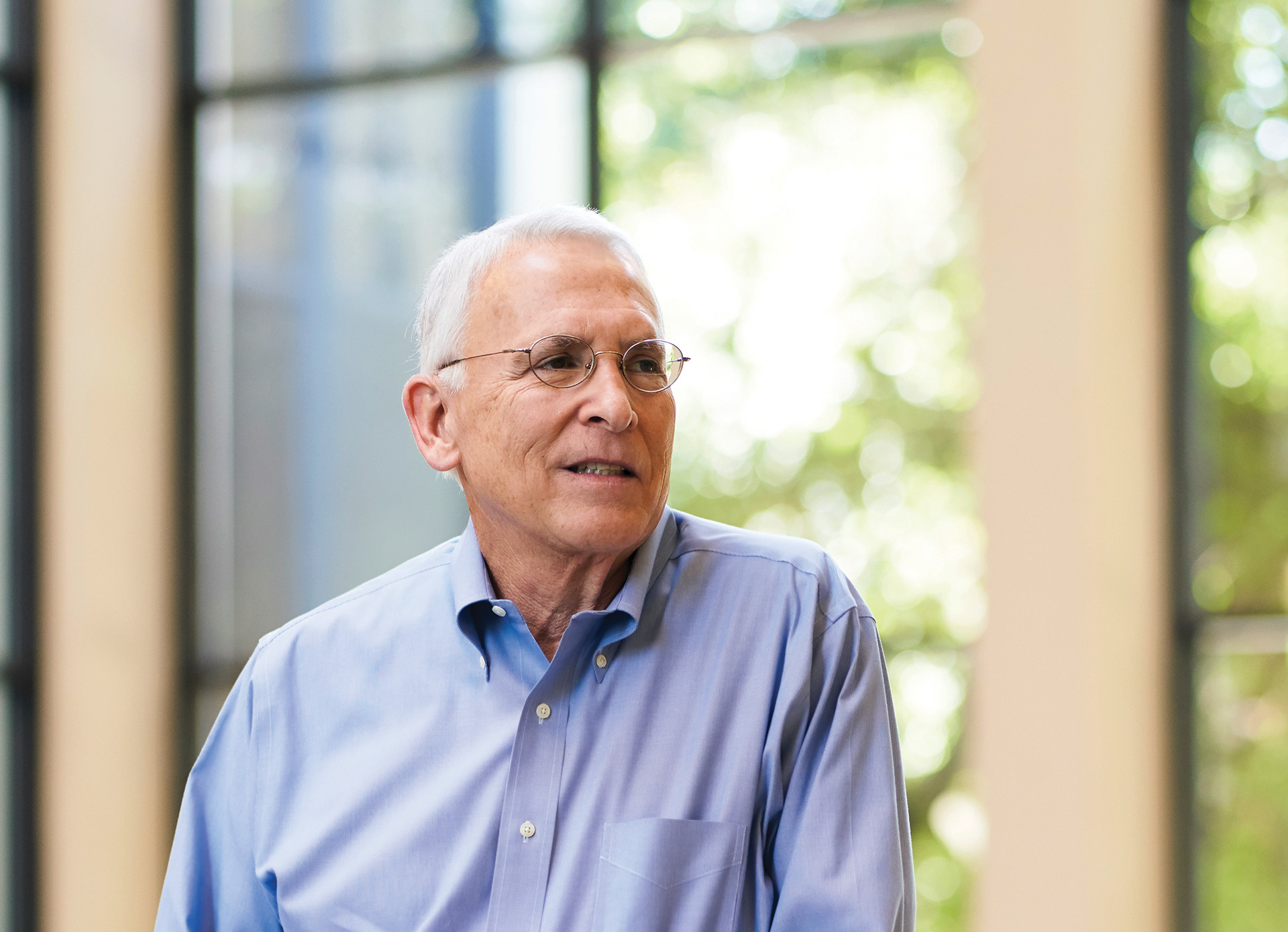Retired, but Still the ‘Caretaker’
Roy D. Elterman, M.D. ’74, gives grants and scholarships to keep pushing medicine forward
By Julie Levin
Photograph by Cooper Neill

Dr. Roy D. Elterman, a Miami native, almost didn’t become a physician at all, but some twists and turns in his education and training brought him to Dallas and a distinguished career in pediatric neurology. He spoke about how starting a foundation lets him continue to make a difference.
How did you end up in a career in medicine?
I am a “caretaker” by nature, so medicine was a natural fit, but my caregiving nature almost took me in another direction. I have always had a great love for animals, and … I seriously considered going to veterinary school.
What led you to decide on medicine and studying at UM?
Back then the medical school admitted a fair number of students after just three years of undergraduate work. I did my freshman year at the University of Florida in Gainesville and then transferred to the University of Miami as a chemistry major. Once I had completed 90 semester hours, I applied and was accepted. Because of that, however, I never actually received an undergraduate degree. I am deeply honored to have been allowed to study medicine, and I think the Miller School of Medicine did an excellent job of educating me.
Now retired, Dr. Roy D. Elterman enjoyed a distinguished career in pediatric neurology.
How did the Miller School influence your career?
In my second year of medical school, we had a “mechanisms of disease” course. One week was dedicated to neurology. The pediatric neurologist at the time was Dr. Stuart Brown. He gave a brilliant lecture on congenital malformations of the brain, and I was blown away. I followed him around that summer, and it was a wonderful experience. I was pretty much hooked on child neurology at that point. I did two years of pediatric residency at the University of California, San Francisco, and planned to follow that with a three-year child neurology fellowship at UM/Jackson Memorial Hospital. Unfortunately, Dr. Brown left and the child neurology program folded. While I did do a year of adult neurology in Miami, I did my child neurology training at the University of Texas Health Sciences Center in San Antonio. That’s how I ended up in Texas.
What are you working on now?
I retired from clinical practice in 2011. Today I run, as president, the Pediatric Epilepsy Research Foundation, a not-for-profit foundation that primarily supports research in pediatric neurology. The foundation has also funded medical school student scholarships, chairs in pediatric neurology and pediatric epilepsy at major universities nationwide, and educational programs in pediatric epilepsy.
What has been your proudest career achievement?
There are really two closely related achievements that I am most proud of. The first is my work with vigabatrin, an anticonvulsant for the treatment of infantile spasms in children, which led to its approval and marketing in the United States. The second is the use of an entirely unexpected royalty stream from the sales of vigabatrin to create and fund the Pediatric Epilepsy Research Foundation.
Why do you support medical scholarships at the Miller School?
I was profoundly honored when I was in medical school at the University of Miami to be given what in those days was called a “trustees scholarship” — a merit-based award. I have always wanted to return the favor. I have now been given that chance, and I could not pass it by. One of the first recipients of your scholarship fund, Amanda Le, M.D. ’19, graduated from the Miller School this year and is beginning her residency.
As an alumnus and donor, what are your thoughts on this milestone?
Amanda could not have been a better pick to receive this scholarship, and I could not be more proud of what she has accomplished. As Amanda is doing, I started my residency training in pediatrics at the University of California, San Francisco. She also honored the scholarship by being elected to Alpha Omega Alpha, the national medical honor society. The Miller School should take great pride, as does the foundation, in her accomplishments.
Save the Date
Medical Alumni Weekend
March 6-7, 2020
We look forward to celebrating with the classes of 1960, 1965, 1970, 1975, 1980, 1985, 1990, 1995, 2000, 2005 and 2010.
Visit alumni.med.miami.edu/ for more information,
or email alumni@med.miami.edu.



